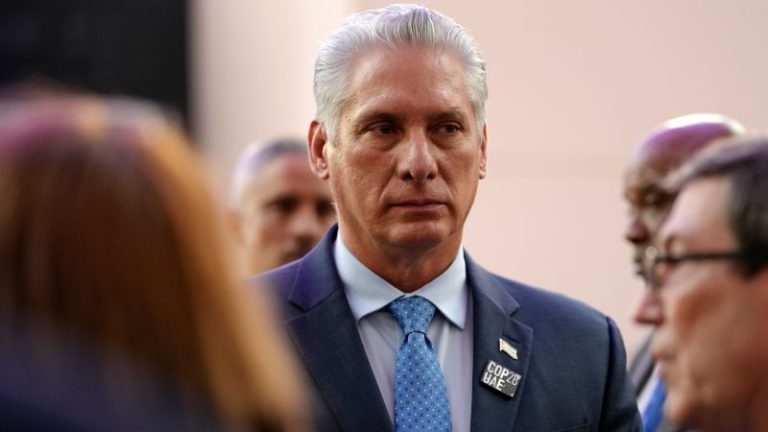Cuban President Miguel Diaz-Canel has said that his government is willing to engage with protesters after hundreds of Cubans partook in rare public protests at the weekend to decry worsening conditions on the island.
Demonstrators took to the streets in at least four cities on Sunday to complain about hours-long power cuts and increasing food scarcity. There were also calls for political freedoms, with chants of “Patria y Vida,” which means fatherland and life in Spanish, a reference to the popular anti-government anthem.
Hundreds of people protested in Santiago de Cuba, known as the birthplace of Fidel Castro’s revolution, while the local secretary of the country’s Communist Party tried to address the crowd from a rooftop.
Diaz-Canel said in a statement Monday that his government was ready “to attend to the complaints of our people, listen, dialogue, explain the many efforts that are being carried out to improve the situation.”
Cuba is in an economic crisis as surging inflation has massively devalued the Cuban peso, with many state salaries now worth less than the cost of a carton of eggs. The government in March raised the price of fuel by more than 500%, further devastating Cubans’ pocketbooks.
The island has seen frequent power cuts and shortages of food, fuel, and medicine since the Covid-19 pandemic, prompting Cubans to flee to the United States in record numbers.
Diaz-Canel also blamed “terrorists” in Miami’s Cuban exile community for stirring up protestors online and US sanctions for Cuba’s increasingly bleak economy.
US diplomats said Sunday they were monitoring the protests and called on the Cuban government to listen to the demonstrators. “We urge the Cuban government to respect the human rights of the protestors and address the legitimate needs of the Cuban people,” the US embassy in Havana posted on X, formerly known as Twitter.
The spontaneous protests seemed to dissipate overnight as demonstrators reported a heavy police presence and some arrests. The Cuban government, which typically does not allow organized dissent, did not say how many protesters had been arrested.
After island-wide demonstrations in the summer of 2021, more than 1,000 Cubans were put on trial and convicted of rising up against the communist-run government, according to human rights groups.

